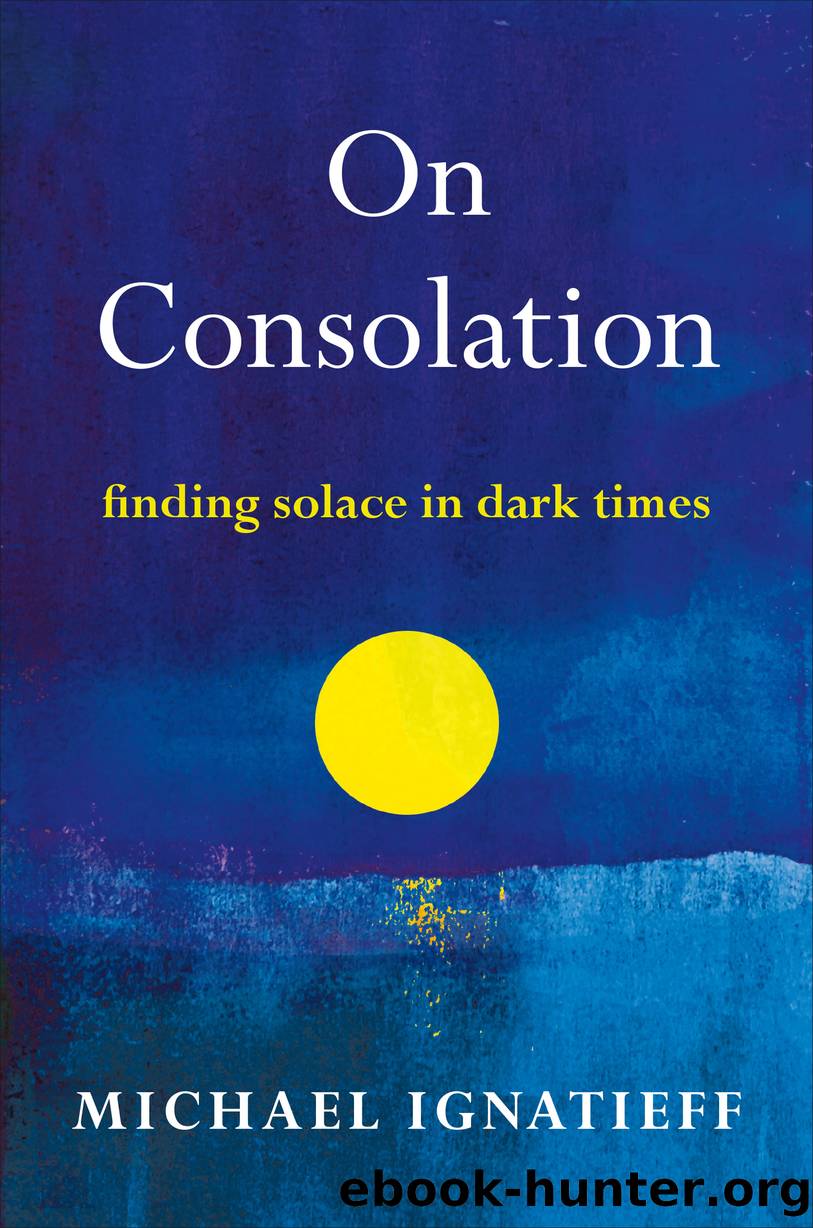On Consolation by Michael Ignatieff

Author:Michael Ignatieff
Language: eng
Format: epub
Publisher: Henry Holt and Co.
But how was human nature to be changed? Shortly after Marxâs arrival in Paris, he was asked to write a critique of the book The Jewish Question, by a former teacher and associate of his, Bruno Bauer. He seized this assignment as an opportunity to work out, in effect, how to overcome such parochial identities as Judaism and to become what the revolution required: a truly free human being. Being young, he thought it would be easy. If he had emancipated himself from Jewishness, why couldnât everyone free themselves of the reactionary identities that held them captive?
What was it, after all, to be a Jew? In his view, the essence of Jewishness was huckstering. Jews lived for trade and commerce. Their God was money. Would Jews still exist if the money system were abolished, capitalism done away with, private property replaced? The answer was obvious. Jewishness would vanish âlike an insipid hazeâ in a truly free society. Jewishness and all such divisions between human beings, all such fault lines that prevented people from recognizing each other as brothers and sisters, would disappear if the root of the problem, capitalism, was done away with.
Alexis de Tocquevilleâs Democracy in America had recently appeared, and Tocquevilleâs America taught Marx that âa state can be a free state without man himself being a free man.â How could men be free if they were still trapped inside the coils of religious delusion, no matter how freely chosen? In a communist future, to be free was to be free of the need for religious illusion and the false consolations it offered.
Marx wrote that in the political revolution of 1789, âman was not freed from religionâhe received the freedom of religion. He was not freed from propertyâhe received the freedom of property.â Marxâs hostility toward the religious toleration granted to Jews and others during the French Revolution was to last for the rest of his life. In 1875, six years before his death, he condemned the German Social Democratsâ Gotha Program for endorsing religious toleration. He thought they should abolish religion altogether.
His utopia was dedicated to overcoming the friction, the war of all against all, race against race, religion against religion, nation against nation, inside civil society. What others might have relished about modernityâthe frantic jostling of competing peoples in the modern cityâfilled him with dismay:
What a spectacle! A society infinitely divided into the most diverse races which confront one another with their petty antipathies, their bad consciences and their brutal mediocrity â¦
Download
This site does not store any files on its server. We only index and link to content provided by other sites. Please contact the content providers to delete copyright contents if any and email us, we'll remove relevant links or contents immediately.
Harry Potter and the Goblet Of Fire by J.K. Rowling(3036)
Unfinished: A Memoir by Priyanka Chopra Jonas(2914)
Never by Ken Follett(2877)
The Man Who Died Twice by Richard Osman(2293)
Machine Learning at Scale with H2O by Gregory Keys | David Whiting(2281)
Fairy Tale by Stephen King(2061)
Will by Will Smith(2039)
Rationality by Steven Pinker(1763)
The Storyteller by Dave Grohl(1658)
The Dawn of Everything: A New History of Humanity by David Graeber & David Wengrow(1569)
The Dark Hours by Michael Connelly(1565)
The Stranger in the Lifeboat by Mitch Albom(1529)
Cloud Cuckoo Land by Anthony Doerr(1430)
The Becoming by Nora Roberts(1326)
Friends, Lovers, and the Big Terrible Thing by Matthew Perry(1326)
New Morning Mercies: A Daily Gospel Devotional by Paul David Tripp(1318)
Einstein: His Life and Universe by Walter Isaacson(1314)
Crying in H Mart by Michelle Zauner(1314)
A Short History of War by Jeremy Black(1297)
